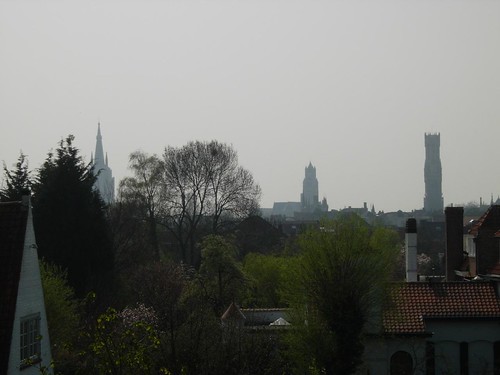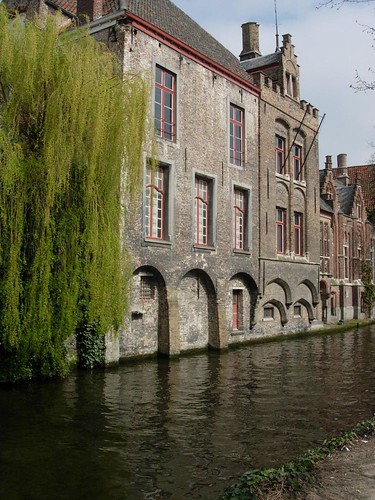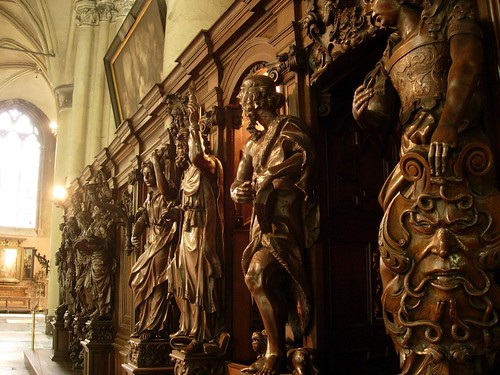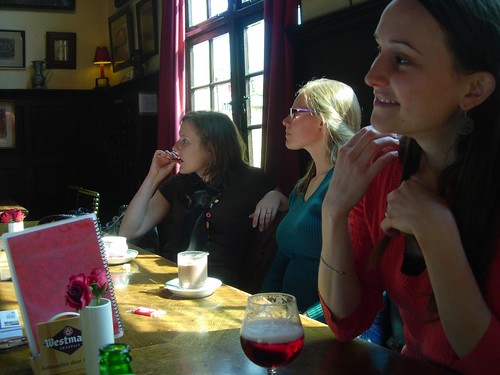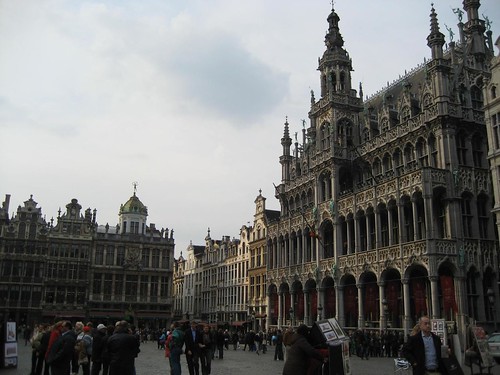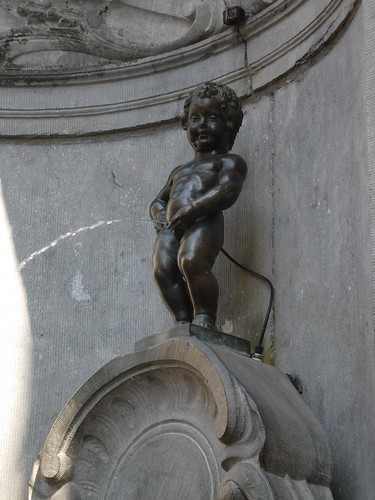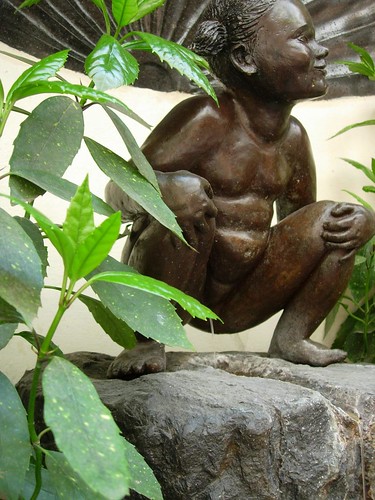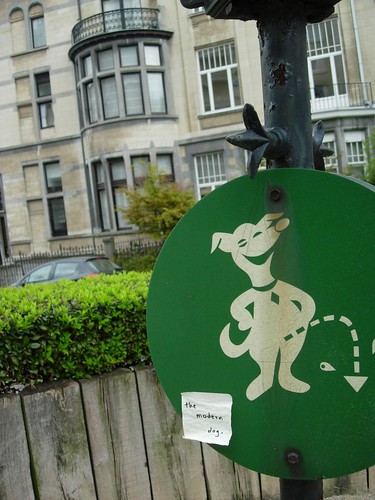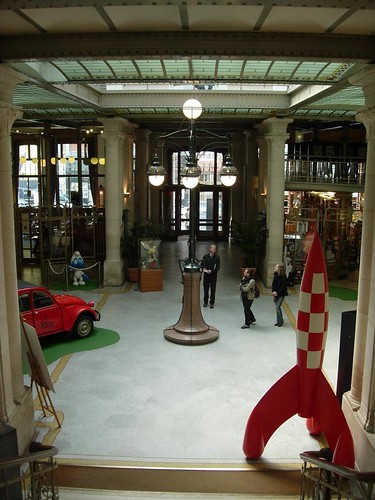We're back in Bonn after another Bosch seminar trip. Our bags are unpacked, there is food in the fridge again, and it is time for a recap. We were on the road for two weeks this time, visiting Brussels, Strasbourg, and Paris.
I'd been through Brussels before, but I had never spent spent days there previously. The city strikes me now as a pleasant mishmash of urban personalities. Its iconic space is the grand place, lined on all sides by imposing facades, including the gothic town hall, and a good many gold-encrusted guild halls.
Having seen many German cities, the old town in Brussels looks decidedly run down. The cobblestone streets are so uneven one wonders if anyone is taking care of them; many walls are dirty or crumbling; and a surprising number of storefronts are vacant for a place overrun with tourists.
We like to live here. The cars smell good. We like to die.
It tells you something about the locals that their mascot is a statue of a pissing boy, the Manneken Pis. If the city looks a bit shabby (despite its obvious EU-generated wealth) then too bad.
Manneken Pis is, naturally, reproduced ad nauseam as a tourist knickknack, and is also the inspiration for what a copyright lawyer would call derivative works, such as a statue of a pissing girl, Jeanneke Pis, and signs depicting a pissing dog, which indicate designated dog toilets.
Especially south and a bit east of the city center, one encounters a number of art nouveau buildings. As with the rest of the city, they are frequently dirty and shabby, despite their inherent elegance. I took myself on a tour, but E. took a guided tour, and the guide pointed out that in fact many of the buildings are in bad shape, and that there are few craftsmen capable of maintaining them properly. Having seen analogous buildings in Vienna, Paris, and even Chicago, I do have to conclude that Brussels art nouveau is underwhelming.
I realize I am alone in my odd enthusiasm, but one of the really great things about Brussels is that it is the undisputed capital of the French-language comic book (
Tintin,
Asterix, etc.). Contributing to the city's funky feel, there are many murals celebrating comic book illustration. In this one, you look down from an imaginary position in the sky at the place where you are standing, except that where you are really standing is a river (and it would be, except that the rivers have all been chased underground).
The
Belgian Comic Strip Center is a museum devoted to comics, particularly of the francophone kind. It is housed in a building designed by Victor Horta, the best known art nouveau architect of Brussels.
My impression of Brussels from this trip is disjointed. Some of it is lovely.
Some of it could use a good scrub and some competent urban planning. And I take it I should keep an eye out for bandits ahead.

